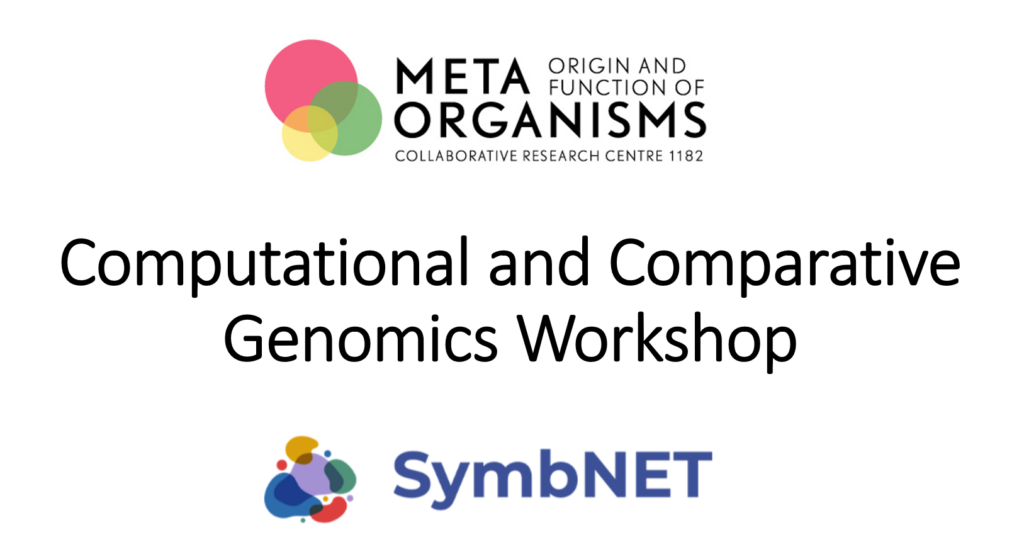SymbNET Online Seminar Series – Michael Zimmermann (EMBL) & Miguel Soares (FCG-IGC)
Dear all,
On 21th October (Thursday), we will have the next session of the SymbNET Seminar Series:
15:00 WET / 16:00 CET
Michael Zimmermann
European Molecular Biology Laboratory (EMBL), Heidelberg
Metabolic host-microbiome interactions Lab
Identify microbiota contributions to xenobiotic metabolism and toxicity
Individuals vary widely in their drug responses, which can be dangerous and expensive due to significant treatment delays and adverse effects. Growing evidence implicates the gut microbiome in this variability, however the molecular mechanisms remain mostly unknown. To systematically map the drug metabolizing capacity of the gut microbiota and to assess its potential contribution to drug metabolism, we measured the ability of 76 diverse human gut bacteria to metabolize each of 271 oral drugs. We found that two thirds of these drugs are chemically modified by at least one of the tested microbes. Through combination of high-throughput bacterial genetics with mass spectrometry, we systematically identified drug-metabolizing microbial enzymes. Further, we developed experimental and computational approaches to separate host and gut microbiota contributions to drug metabolism in vivo. These allowed us to quantify and predict microbiota contributions to drug metabolism and toxicity. These causal links between microbiota gene content and metabolic activities connect inter-individual microbiome variability to interpersonal differences in the metabolism of drugs and other xenobiotics.
15:30 WET / 16:30 CET
Miguel Soares
Instituto Gulbenkian de Ciência (IGC-FCG)
Inflammation Lab
On How The Loss Of A Glycan Shaped Primate Evolution
Most mammals express a functional GGTA1 gene encoding the N-acetyllactosaminidea-1,3-galactosyl-transferase enzyme, which synthesizes Gal-alpha1-3Gal-beta1-4GlcNAc (alpha-gal) and are thus tolerant to this self-ex-pressed glycan. Old World primates including humans, however, carry loss-of-function mutations in GGTA1 and lack alpha-gal. Presumably, fixation of such mutations was propelled by natural selection, favoring the emergence of alpha-gal-specific immunity, conferring resistance to alpha-gal-expressing pathogens. Here, I will discuss the findings from Sumnima Singh PhD Thesis at the Instituto Gulbenkian de Ciência, showing that loss of Ggta1 function in mice shapes the bacterial composition of the gut microbiota and enhances resistance to bacterial sepsis, irrespectively of alpha-Gal-specific immunity. Rather, the absence of alpha-gal from IgG-associated glycans increases IgG effector function via a mechanism associated with enhanced IgG-Fc gamma receptor (FcgR) binding. The ensuing survival advantage against bacterial sepsis comes alongside a cost of accelerated reproductive senescence in Ggta1-deleted mice. Mathematical modeling of this trade-off suggests that high exposure to virulent pathogens exerts sufficient selective pressure to fix GGTA1 loss-of-function mutations, as likely occurred during the evolution of primates toward humans.
These will be monthly online seminars on host-microbe symbiosis, genomics, and metabolomics, with two talks from SymbNET researchers.
Slots of 30 minutes to talk with the speakers will be available after the seminars. Priority will be given to students and Postdocs from SymbNET members Institutions. If you are interested, please contact Mariana Simões at symbnet@igc.gulbenkian.pt.
These seminars are open and free of charge. You can find more information at https://igc.events.idloom.com/symbnet_seminars.
If you already registered for SymbNET activities before, you will receive a link to this seminar closer to the date. If not, please register at https://igc.events.idloom.com/symbnet_seminars.
We are looking forward to your participation.
SymbNET – Genomics and Metabolomics in a Host-Microbe Symbiosis Network
This project has received funding from the European Union’s Horizon 2020 research and innovation programme under grant agreement No 952537

Who
When
October 21st, 2021
16:00



